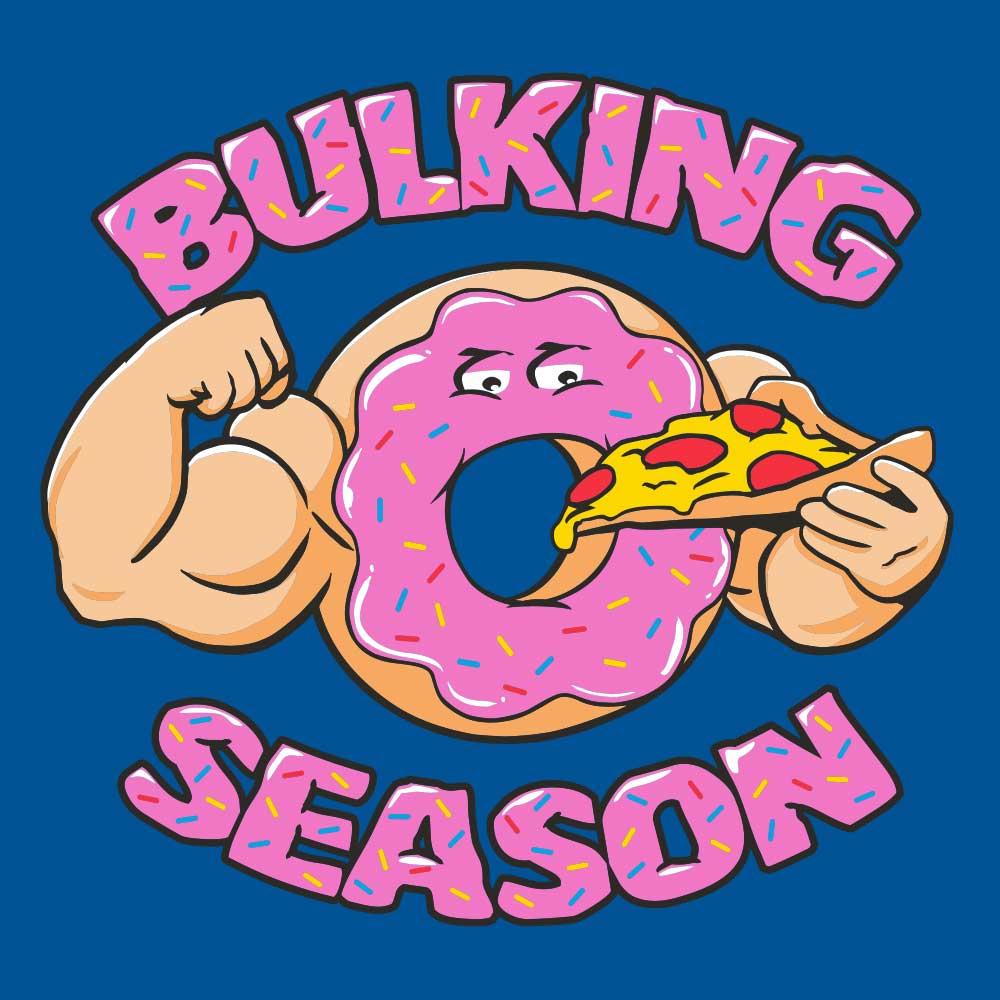Bulking Season: Tips, and Common Mistakes
Your Guide to Building Muscle, Eating Right, and Avoiding Bulking Mistakes

Bulking Season Plan:
- Introduction
Bulking season is a crucial phase for anyone looking to gain muscle mass and strength. Often associated with bodybuilding, bulking involves consuming a surplus of calories while engaging in a rigorous strength training program. This period is essential for those aiming to increase muscle size, as it allows the body to build muscle tissue effectively. In this article, we will explore what bulking season entails, how to prepare for it, and the best strategies to ensure success.
- Understanding Bulking Season
What is Bulking?
Bulking is the process of eating more calories than your body needs to maintain its current weight, with the goal of gaining muscle mass. This phase is usually followed by a cutting phase, where the focus shifts to losing fat while preserving muscle.
Types of Bulking: Clean vs. Dirty
Clean bulking involves consuming a surplus of calories from nutrient-dense foods, focusing on whole grains, lean proteins, and healthy fats. Dirty bulking, on the other hand, allows for a more relaxed approach, including high-calorie foods with less emphasis on nutritional quality.
The Science Behind Muscle Growth
Muscle growth, or hypertrophy, occurs when the muscle fibers sustain damage during resistance training and then repair and grow stronger. This process requires adequate nutrition, particularly protein, and is fueled by a caloric surplus.
- Preparing for Bulking Season
Setting Realistic Goals
Before starting a bulking phase, it’s essential to set realistic goals. Consider how much muscle you want to gain, the time frame, and your current body composition.
Calculating Caloric Needs
To bulk effectively, you need to calculate your daily caloric needs. This involves determining your Basal Metabolic Rate (BMR) and adding calories based on your activity level and bulking goals.
Importance of Macronutrient Balance
While calories are crucial, the balance of macronutrients—proteins, carbohydrates, and fats—is equally important. Protein supports muscle repair, carbohydrates fuel workouts, and fats are necessary for hormone production.
- Nutrition Strategies for Bulking
Role of Protein in Muscle Gain
Protein is the building block of muscle. During bulking, aim to consume 1.2 to 2.2 grams of protein per kilogram of body weight daily to support muscle growth.
Carbohydrates: Energy for Workouts
Carbohydrates provide the energy needed for intense workouts. Complex carbs like oats, sweet potatoes, and brown rice are preferred as they offer sustained energy.
Fats: Essential for Hormone Production
Dietary fats play a vital role in hormone production, including testosterone, which is crucial for muscle growth. Focus on healthy fats from sources like avocados, nuts, and olive oil.
Sample Bulking Meal Plan
A sample meal plan might include:
- Breakfast: Oatmeal with protein powder and berries
- Lunch: Grilled chicken with quinoa and steamed vegetables
- Dinner: Salmon with sweet potatoes and a side salad
- Snacks: Greek yogurt, nuts, and protein shakes
- Training During Bulking Season
Strength Training Basics
Strength training is the cornerstone of any bulking phase. Focus on compound movements like squats, deadlifts, and bench presses that target multiple muscle groups.
Importance of Progressive Overload
Progressive overload involves gradually increasing the weight, frequency, or number of repetitions in your strength training routine to continue challenging your muscles.
Balancing Volume and Intensity
Finding the right balance between training volume (total number of sets and reps) and intensity (weight lifted) is key to maximizing muscle growth without overtraining.
Cardio: How Much is Too Much?
While cardio can be part of a bulking routine, excessive cardio may burn too many calories, counteracting your bulking efforts. Limit cardio to a few sessions per week.
- Common Bulking Mistakes
Overeating and Gaining Excess Fat
One common mistake is overeating, which can lead to excessive fat gain. Aim for a moderate caloric surplus to minimize fat accumulation.
Ignoring Micronutrients
Focusing solely on macronutrients and neglecting micronutrients can hinder your progress. Vitamins and minerals are essential for overall health and performance.
Lack of Consistency in Training
Inconsistent training can stall your progress. Stick to a regular workout schedule to ensure continuous muscle growth.
Not Tracking Progress
Tracking your progress through measurements, photos, and strength levels is crucial to assess whether your bulking strategy is working.
- Supplements for Bulking
Protein Powders
Protein powders are a convenient way to meet your daily protein needs, especially when food sources fall short.
Creatine
Creatine is one of the most researched supplements for muscle growth. It helps increase strength and muscle mass by boosting energy production during intense workouts.
BCAAs
Branched-chain amino acids (BCAAs) support muscle recovery and reduce muscle soreness after workouts.
Are Supplements Necessary?
While supplements can enhance your bulking efforts, they are not mandatory. Focus on getting most of your nutrients from whole foods.
- Expert Insights
Quotes from Fitness Experts on Bulking
“Bulking should be approached with the same precision as cutting. It’s not just about eating more; it’s about eating smart.”
Case Studies: Successful Bulking Stories
Consider the case of John, who gained 15 pounds of muscle over a 6-month bulking phase by following a structured meal plan and consistent training regimen.
- Future Outlook and Emerging Trends
Advances in Nutrition Science
The future of bulking may see more personalized nutrition plans based on genetic testing and advanced biomarkers.
Technology in Strength Training
Wearable tech and AI-driven training programs are set to revolutionize how we approach bulking, offering more tailored and efficient routines.
Sustainable Bulking Practices
Sustainable bulking focuses on long-term health, balancing muscle gain with minimal fat accumulation and overall well-being.
- Practical Tips for Effective Bulking
How to Stay Motivated
Staying motivated during bulking can be challenging. Set short-term goals, celebrate small wins, and find a workout partner to keep you accountable.
Managing Expectations
Understand that bulking is a gradual process. Don’t expect overnight results; focus on steady, sustainable progress.
Maintaining a Balanced Lifestyle
Balancing bulking with other aspects of life is crucial. Ensure you get enough rest, manage stress, and enjoy hobbies outside the gym.
- Conclusion
Bulking season is an essential phase for anyone looking to increase muscle mass. By understanding the principles of bulking, preparing adequately, and following the right nutrition and training strategies, you can maximize your gains while minimizing fat accumulation. Stay consistent, track your progress, and remember that patience is key. Happy bulking!
We hope you enjoyed this blog and found it helpful.
